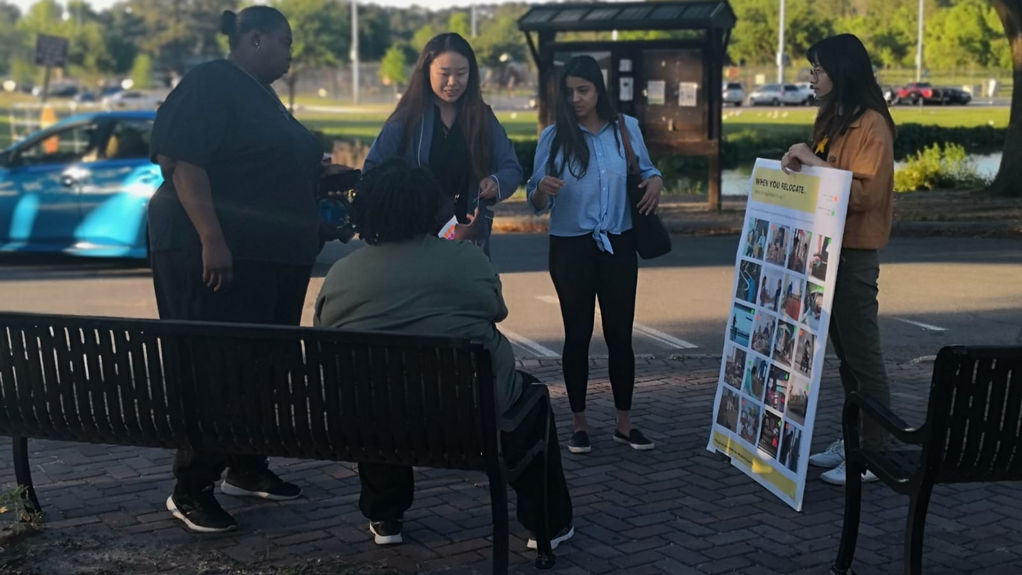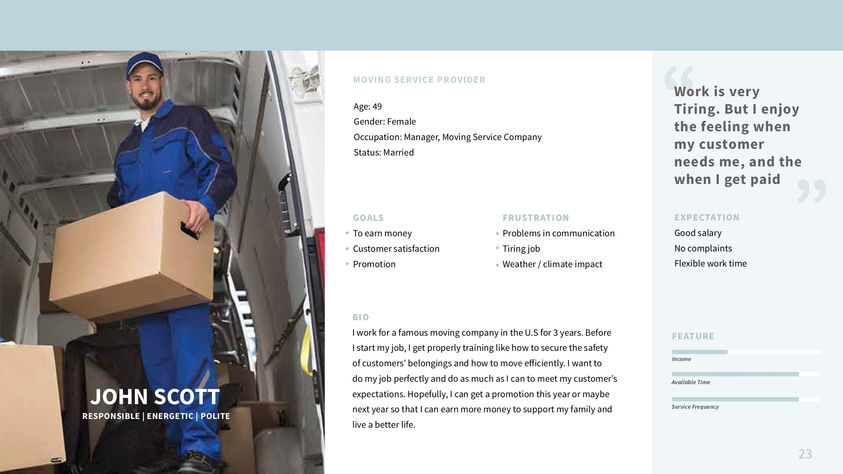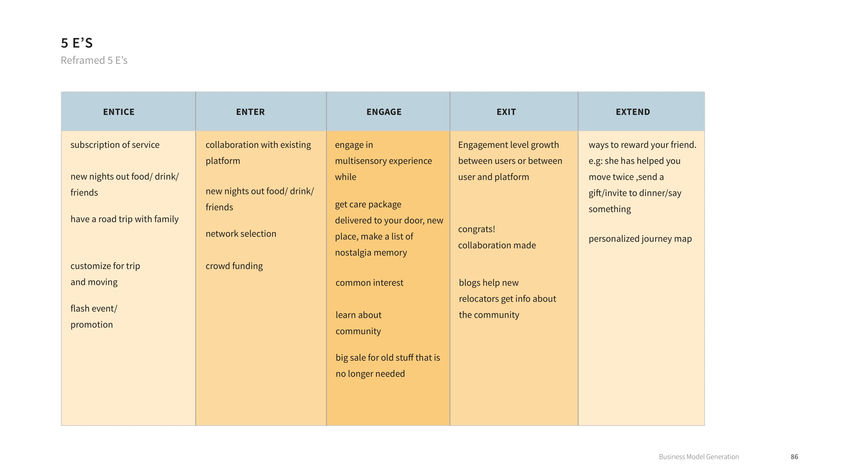top of page
CORE
CORE is a fast and an intuitive service for a joyful relocation experience within the United States

Overview
The project goal is to create a blue ocean opportunity in the existing housing market to identify the pain points of the relocators by using Design Thinking methods.
My key role
Design Manager
UX Designer
Project Timeline
Mar 2019 - May 2019
Challenge
To identify the blue ocean opportunity in the housing market, and to understand the users behaviors and their pain points while relocating from one place to another within the United States.
Design Question
How might we use design thinking to enhance the experience of relocation by encouraging collaboration in relocator social circle?
Design Process
- User Research
- Market Research
- User & Business Goals
- Personas defined
- Actionable insights
- Product Strategy
- Ideation
- User Scenarios
- Wireframes
- Prototype
- User Test
- Re-iterat
- Pitch
Solution Overview
CORE is a collaborative community for relocator and their social circle which provides emotional connection in the process of relocation, while building up their social circle.

Discover
40 M relocate
Every year 40 M people relocate within the United States
25% due to various reasons
People relocate for various reasons, like for better employment opportunities, better housing and community, climate changes, high tax rates
Research and Synthesis Methods

In-depth Interviews


Survey Design
Market Analysis

Analysis & Synthesis
.png)

User Testing
Design innovation
To better understand the industry rivalry for the Relocation in Housing, the initial discovery started with the competitor analysis, designing surveys for two user groups like relocators and the social circle, and in-depth interviews were conducted for four different user groups like relocators, moving service providers, social network and housing providers.
170 + Users in Research & Testing
Survey and Interview insights
62%
move without any moving services
of participants are willing to spend less than $300 for relocation
72%
55.6
of participants have helped others relocate
of participants think helping others to move is a good chance to strengthen relationship
60
Inspiring for users
Uninspiring for users
-
Most of the Millennials prefered self driving but taking help for packing either from friends or buying packing boxes to pack things.
-
Most of the Gen X prefered using moving service provider services to pack and move things from one place to other.
-
Around 45% users they believed in keeping in contact with existing friends and family, but they were also interested in making new connections.
-
Around 65% of the users were frustrated with the packing and unpacking of things while moving
- Lot of back and forth with the housing providers, moving service providers to relocate
- No direct engagement with new community
- Limited Time
- Limited Money
Market Analysis Insights
We began by using contextual design inquiry to research existing Markets and Social Systems in leading markets. We then began to identify network leaders in areas with obvious gaps and opportunities. We conducted broad market analysis to begin identifying trends in the culture and society. We used various modeling such as mind maps, 2x2 analysis, also known as axis charting, to map quantity versus quality and identify existing trends and gaps in markets. We ended the research for this part by using segment matrices to capture competitor information.
Define
To define the scope of the project the next stage was to analyze the data, define user segmentation and build the personas. Also, comparing it with the industry analysis.
Design
User Quotes
-
"Recently they have moved and they prioritized for a better community and neighborhood to be able to be safe for their children"
-
"Excited, nervous to come to the new city where I've never seen my new apartment”
-
"Relocation makes me lose contact with some neighbors and most of time, people are busy, I don't want to bother them"
-
"Moving my stuff was a big part but not as much as getting here"
Ideation
I facilitated the Creative Matrix Workshop with the colleagues and carried out the ideation process by placing out main personas on this chart of 5E’s i.e Entice, Enter, Engage, Exit and Extend. The next step was to ideate concepts based on Personas needs and goals and place it in right section of 5 E's.
Business Model Generation
Business Model Canvas was used as a method to plan the business from the research and hence we developed a business plan for the service that would succeed in the long run for our users.
Design Criteria
After analyzing and synthesizing everything, we decided to build a design criteria for the next steps. This was done with analyzing our competitors in the market and find that right blue ocean opportunity for us to build the right solution.
Brand Development
CORE makes the process of relocation joyful, by connecting relocators with trusted helpers from their community, who provide personalized service that creates emotional and physical support for relocator.
From the beginning we were focused on the process of relocation through collaboration.
The logo is designed such as it give you idea of how collaboration can be achieved while relocation. As we all know the meaning of ‘Core’ the central or most important part of something, so we wanted to keep it fun loving and adaptive and the color of the brand depicts the happiness in the process of relocation achieved after using Core.
User Scenarios and User Journeys
The scenario planning is helpful to achieve the goal of the user by assigning them with a particular task. The scenario planning assignment can be performed with the team and assumptions can be made based on what she will see first, followed with what kind of experience we want her to provide, following what we need to do to help her find that.
A user journey map is always focused on the experience of one main actor — a user persona who experiences the journey. Here, Jessica's (Relocator) user journey before using CORE and after using CORE is mapped and the pain points and gain points with it.
Information Architecture
IA is a blueprint of the design structure which can be generated into wireframes and sitemaps of the project. We worked on user flows and the structure of the mobile app to ensure seamless and easy way of using the app.

Low Fidelity Wireframes
We did lo-fi wireframing to lay out the content what we had starting with low fidelity. The wireframes helped us a lot concise the content and create proper user flows throughout.
Usability Testing
Usability testing lead us to discover problems with the flow and functioning of the app. It also helped us increase empathy with our users. Prompts were given to the subject and observations were made about the result. We also asked and fielded questions for immediate feedback and problem solving. If possible, quick adjustments were done to test added or adjusted features

High-Fidelity Prototype - Final Deliverable
We updated the App design based on the feedback of our target users.


Efficient signing up
experience
The simple and easy to follow onboarding helps the new user to quickly get acquainted with how CORE works
Relocator Home Page & Helper Options Available
A relocator can select what kind of relocation he wants when he is moving with the selected options given from the research grounded in user behavior




Helper Profile
The Intuitive interaction and simple options to select to go ahead with the procedure helps users to save time. Also, helps the customer to know if that's a verified user.
Relocator Gets Message from the Helper
A relocator and helper can exchange conversations about the relocation experience




Become a Helper
The Intuitive and easy to user interface gives you guide to how and when can you help to a relocator
Pitch
We created the storyline and a video commercial from getting inspiration by Simon Sinek’s art of the pitch.
Learnings
The process is fast paced, patience and being persistent is the key to success!
bottom of page









































